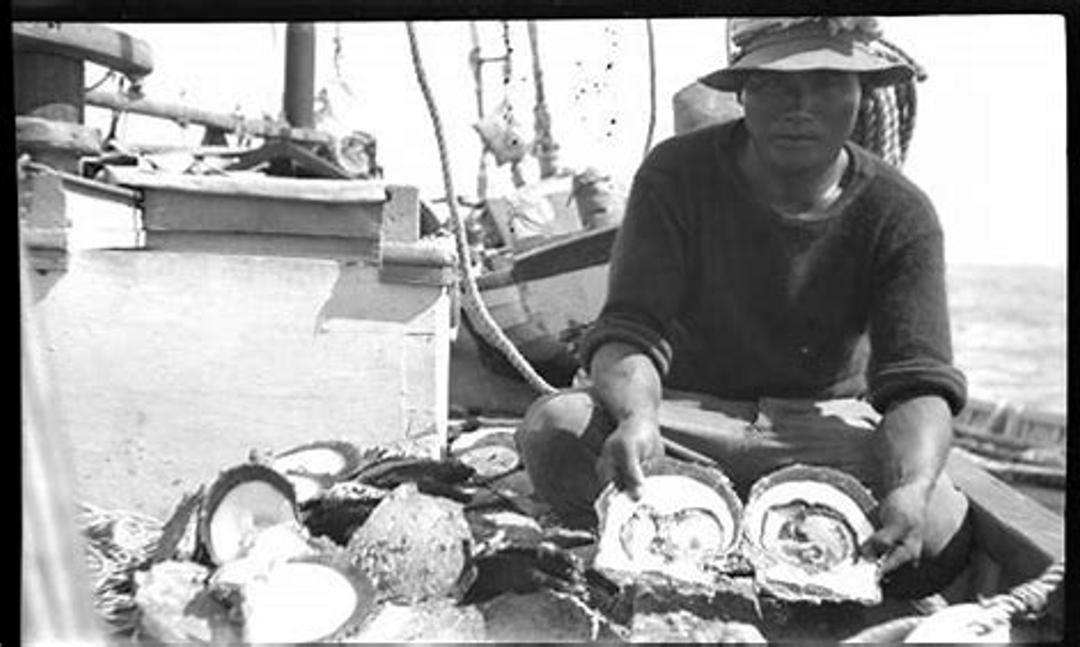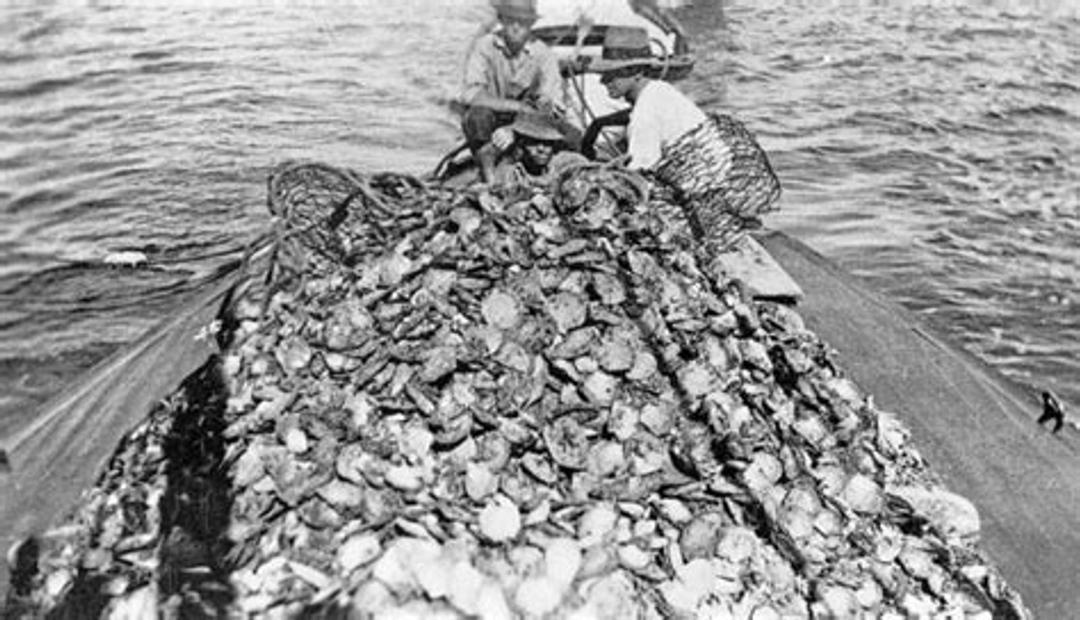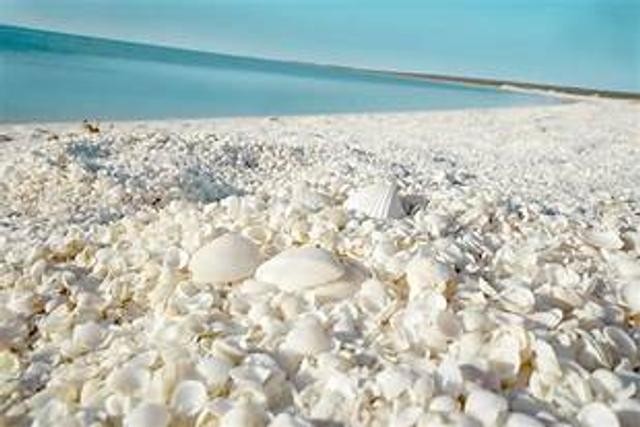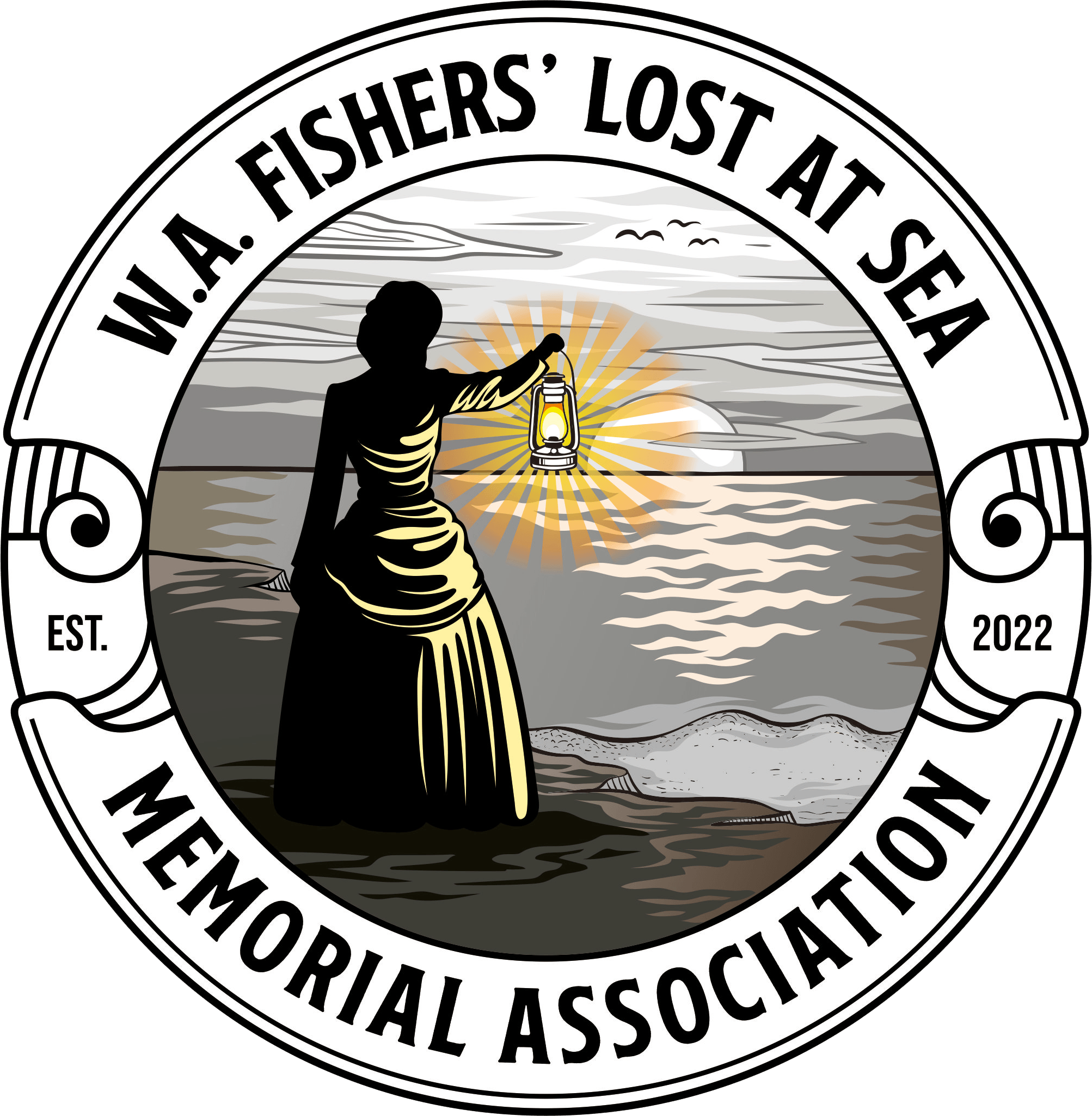Kalif
Vessel Name: Helena
Kalif
Knocked overboard and drowned
23 August 1890

A Malay shell opener

Shell aboard a shallow boat

Shell Beach Shark Bay
From the 1850s Shark Bay was populated by a rush of Europeans who built makeshift camps They came for the piles of pearl shells that lay on the beach and in the shallow tidal waters. The world wanted pearl shells for buttons and adornments. Some of the shells yielded pearls.
Gathering pearl shell from the beach at low tide was called “dry shelling”. In the early days of pearling in Shark Bay workers simply walked the beach gathering shells and taking them to a camp where they were put into vats called pogie pots, so the pearl meat could be rendered down to expose pearls. Pearls and shells were bagged and loaded onto coastal cargo boats (tramps) and taken to Fremantle to be sold.
Dry shelling was a labour-intensive job. It required workers for the shallow boats and barges, and shore gatherers. Trusted people were employed in opening the shells, boiling down the pearl meat. Since Shark Bay was remote and the work was hard, First Nations people, Chinese, Pacific Islanders and Malays were indentured to work for pearling masters.
Indentured workers were not paid well, and some not at all. Men, women and children died from drowning, when boats sank, in storms and accidents. Some died of illnesses like dysentery which spread through the makeshift camps in the creeks. Many of the dead were unceremoniously buried in the sand dunes behind the beach.
Kalif was a Malay working on board the Helena, a lighter boat servicing the boats that brought supplies and took the pearl shells to be sold. There were no roads to the isolated area. Boats were the only form of transport.
Helena’s master was Mr Hastie. On 23 August 1890, he and Kalif were at work taking shell to waiting boats. They used sails. Cargo boats had deep drafts and were forced to anchor at a distance from the shore. In a sudden jibe, the main sail boom struck Kalif and knocked him overboard.
It is unclear what measures were taken to rescue Kalif from the water. He drowned. There is no burial marker for him or any of the other workers at the Wilyah Mia or Freshwater Camp (Denham) burial sites. The incident raised little mention in newspapers.
